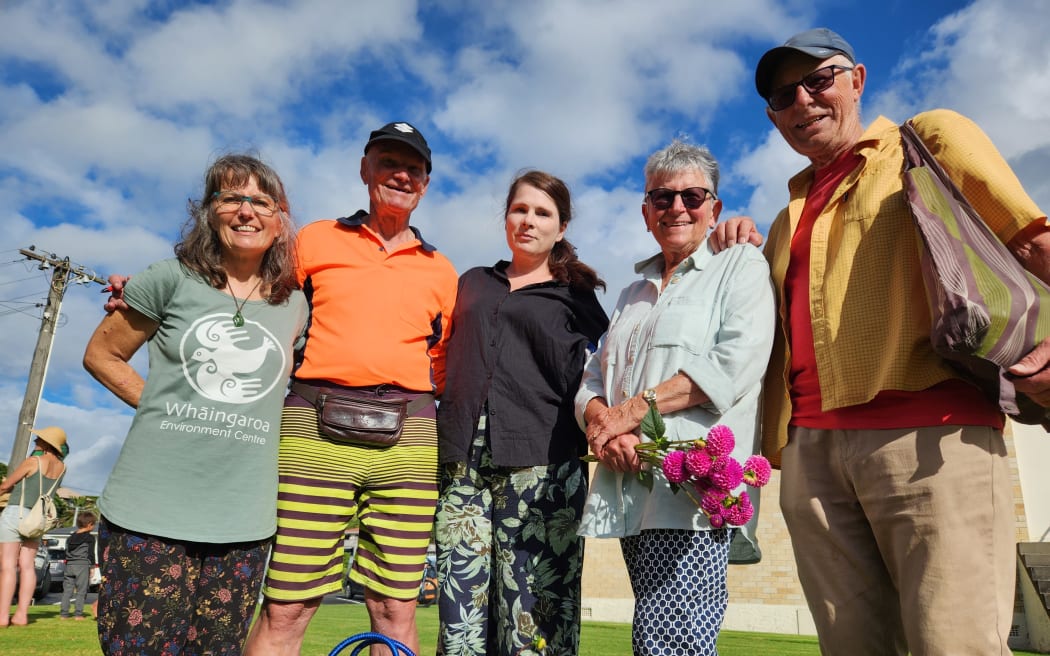
Raglan's volunteer seed savers with Tania Ashman (L) and Jasmine Hunter (C) of the Whāingaroa Environment Centre Photo: RNZ/Sally Round
An old vault in the Raglan town hall has found a new purpose, keeping seeds fresh for sharing among the local community.
The seed bank is part of community efforts to ensure cultivars suitable for the local climate keep growing, people-to-people connections thrive and there's food security for all.
From the vault, the seeds are put onto a specially-made stand built out of scrap wood which is wheeled out on to the front steps of the town hall.
From there passers-by can grab a handful of seed-raising mix from the bag nearby, pop it into a recycled seed punnet and take their pick from the seeds collected and packaged up by local volunteers.
The seed bank has been going for 25 years and is among projects co-ordinated by Jasmine Hunter and Tania Ashman of the Whāingaroa Environment Centre.
"We're keen on saving seeds and distributing seeds, because it's part of food sovereignty. So the idea is that people have control and access to growing their own food," Ashman explained.
The pandemic brought a new lease of life to the seed bank and people can now get the seeds for free.
Heritage plants and vegetables suited to local conditions are also being given the chance to thrive through the seed collecting.
"Some of them are starting to become really associated with Raglan, so we're getting our own range and cultivars that really suit."
"I've had teary moments actually," Hunter said.
"I've seen teenage boys after school, stopping at the seed bank, filling up one of their punnets, and then a little grandma will come along and they'll have this beautiful interaction and connection.
"The grandma will be teaching the teenage boy about the seed.
"This is exactly why it exists. It's not just for food security. It's also for that personal connection between generations."

